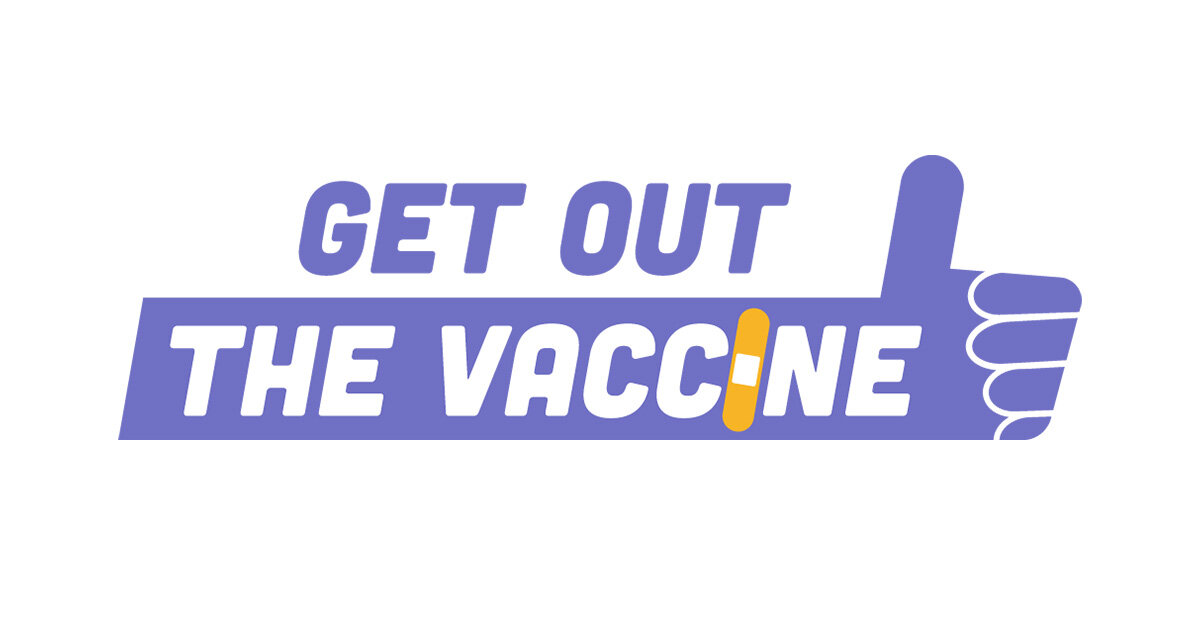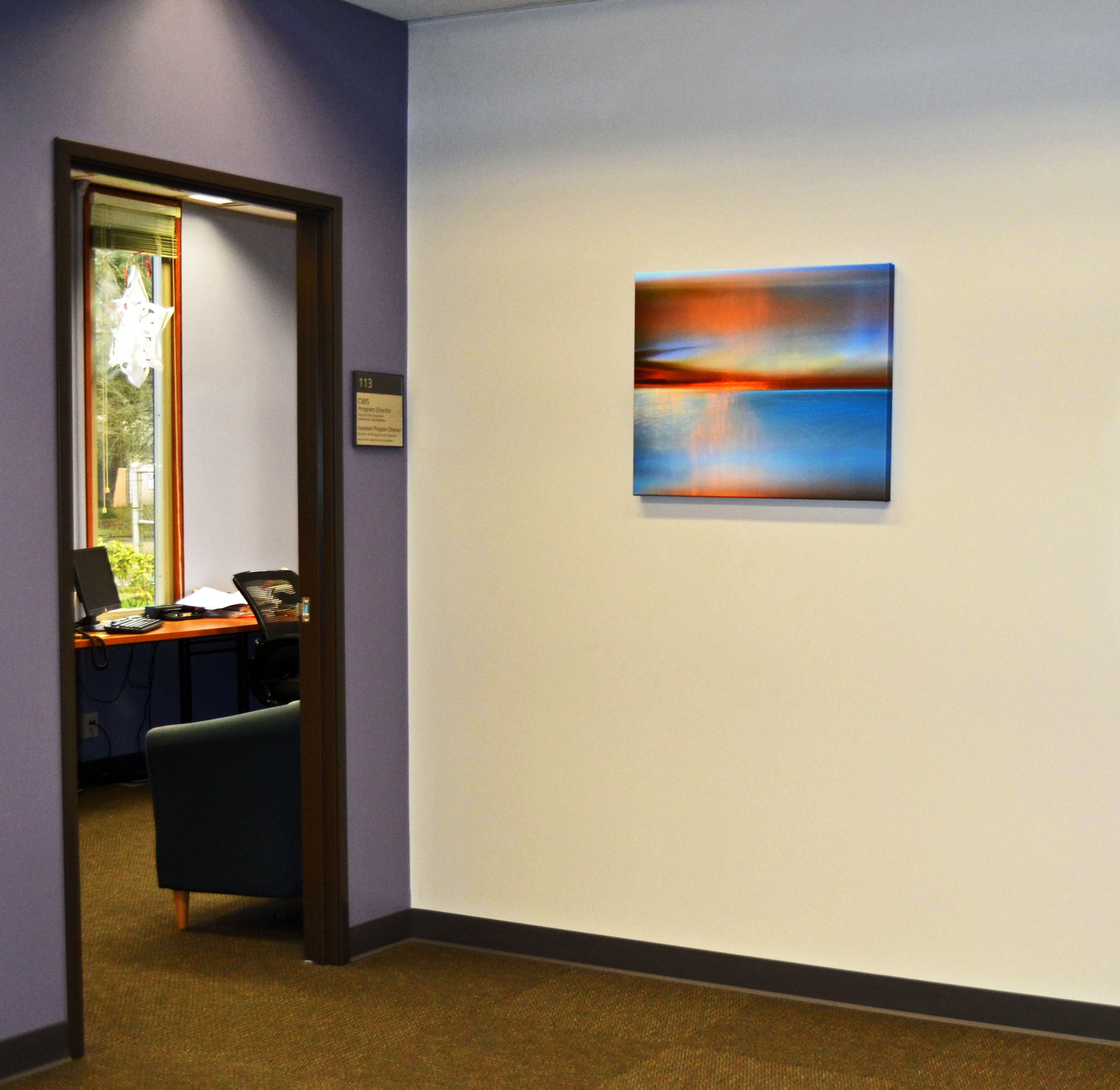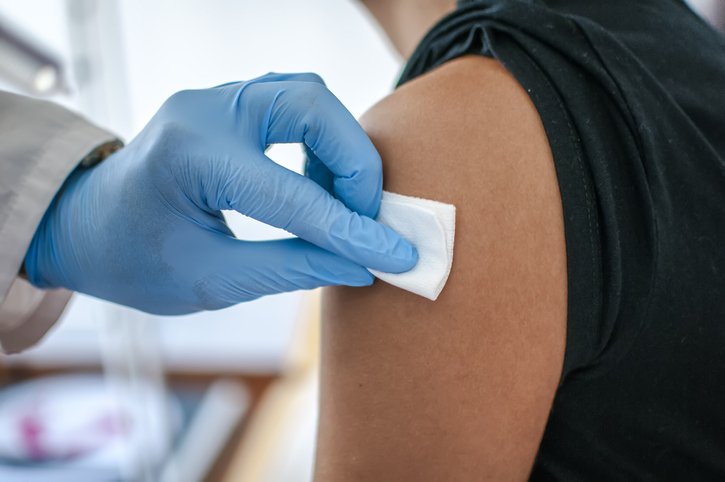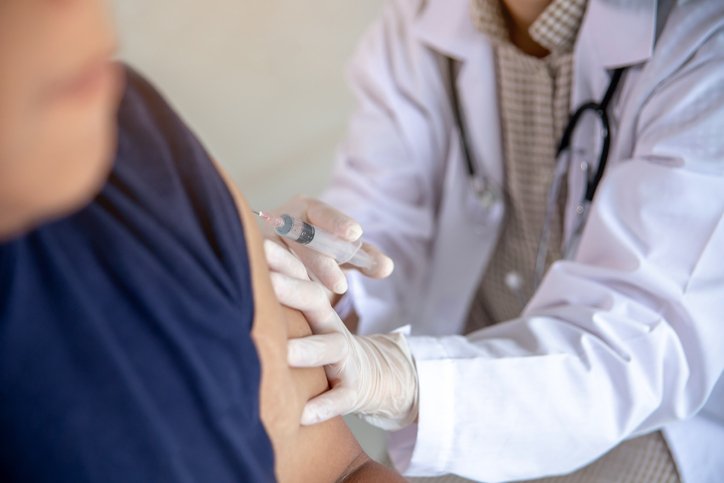Interim Public Health Recommendations for Fully Vaccinated People Updates: July 27, 2021
Summary of Recent ChangesUpdated information for fully vaccinated people given new evidence on the B.1.617.2 (Delta) variant currently circulating in the United States.Added a recommendation for fully vaccinated people to wear a mask in public indoor settings in areas of substantial or high transmission.Added information that fully vaccinated people might choose to wear a mask regardless of the level of transmission, particularly if they are immunocompromised or at increased risk for severe disease from COVID-19, or if they have someone in their household who is immunocompromised, at increased risk of severe disease or not fully vaccinated.Added a recommendation for fully vaccinated people who have a known exposure to someone with suspected or confirmed COVID-19 to be tested 3-5 days after exposure, and to wear a mask in public indoor settings for 14 days or until they receive a negative test result.CDC recommends universal indoor masking for all teachers, staff, students, and visitors to schools, regardless of vaccination status.View Previous UpdatesKey PointsThe following recommendations apply to non-healthcare settings. For related information for healthcare settings, visit Updated Healthcare Infection Prevention and Control Recommendations in Response to COVID-19 Vaccination.Fully vaccinated people can:Participate in many of the activities that they did before the pandemic; for some of these activities, they may choose to wear a mask.Resume domestic travel and refrain from testing before or after travel and from self-quarantine after travel.Refrain from testing before leaving the United States for international travel (unless required by the destination) and refrain from self-quarantine after arriving back in the United States.Refrain from routine screening testing if feasible.Infections happen in only a small proportion of people who are fully vaccinated, even with the Delta variant. However, preliminary evidence suggests that fully vaccinated people who do become infected with the Delta variant can spread the virus to others. To reduce their risk of becoming infected with the Delta variant and potentially spreading it to others: CDC recommends that fully vaccinated people:Wear a mask in public indoor settings if they are in an area of substantial or high transmission.Fully vaccinated people might choose to mask regardless of the level of transmission, particularly if they or someone in their household is immunocompromised or at increased risk for severe disease, or if someone in their household is unvaccinated. People who are at increased risk for severe disease include older adults and those who have certain medical conditions, such as diabetes, overweight or obesity, and heart conditions.Get tested if experiencing COVID-19 symptoms.Get tested 3-5 days following a known exposure to someone with suspected or confirmed COVID-19 and wear a mask in public indoor settings for 14 days after exposure or until a negative test result.Isolate if they have tested positive for COVID-19 in the prior 10 days or are experiencing COVID-19 symptoms.Follow any applicable federal, state, local, tribal, or territorial laws, rules, and regulations.People who are immunocompromised should be counseled about the potential for reduced immune responses to COVID-19 vaccines and to follow current prevention measures (including wearing a mask, staying 6 feet apart from others they don’t live with, and avoiding crowds and poorly ventilated indoor spaces) regardless of their vaccination status to protect themselves against COVID-19 until advised otherwise by their healthcare provider.

Summary of Recent Changes
Updated information for fully vaccinated people given new evidence on the B.1.617.2 (Delta) variant currently circulating in the United States.
Added a recommendation for fully vaccinated people to wear a mask in public indoor settings in areas of substantial or high transmission.
Added information that fully vaccinated people might choose to wear a mask regardless of the level of transmission, particularly if they are immunocompromised or at increased risk for severe disease from COVID-19, or if they have someone in their household who is immunocompromised, at increased risk of severe disease or not fully vaccinated.
Added a recommendation for fully vaccinated people who have a known exposure to someone with suspected or confirmed COVID-19 to be tested 3-5 days after exposure, and to wear a mask in public indoor settings for 14 days or until they receive a negative test result.
CDC recommends universal indoor masking for all teachers, staff, students, and visitors to schools, regardless of vaccination status.
Key Points
The following recommendations apply to non-healthcare settings. For related information for healthcare settings, visit Updated Healthcare Infection Prevention and Control Recommendations in Response to COVID-19 Vaccination.
Fully vaccinated people can:
Participate in many of the activities that they did before the pandemic; for some of these activities, they may choose to wear a mask.
Resume domestic travel and refrain from testing before or after travel and from self-quarantine after travel.
Refrain from testing before leaving the United States for international travel (unless required by the destination) and refrain from self-quarantine after arriving back in the United States.
Refrain from routine screening testing if feasible.
Infections happen in only a small proportion of people who are fully vaccinated, even with the Delta variant. However, preliminary evidence suggests that fully vaccinated people who do become infected with the Delta variant can spread the virus to others. To reduce their risk of becoming infected with the Delta variant and potentially spreading it to others: CDC recommends that fully vaccinated people:
Wear a mask in public indoor settings if they are in an area of substantial or high transmission.
Fully vaccinated people might choose to mask regardless of the level of transmission, particularly if they or someone in their household is immunocompromised or at increased risk for severe disease, or if someone in their household is unvaccinated. People who are at increased risk for severe disease include older adults and those who have certain medical conditions, such as diabetes, overweight or obesity, and heart conditions.
Get tested if experiencing COVID-19 symptoms.
Get tested 3-5 days following a known exposure to someone with suspected or confirmed COVID-19 and wear a mask in public indoor settings for 14 days after exposure or until a negative test result.
Isolate if they have tested positive for COVID-19 in the prior 10 days or are experiencing COVID-19 symptoms.
Follow any applicable federal, state, local, tribal, or territorial laws, rules, and regulations.
People who are immunocompromised should be counseled about the potential for reduced immune responses to COVID-19 vaccines and to follow current prevention measures (including wearing a mask, staying 6 feet apart from others they don’t live with, and avoiding crowds and poorly ventilated indoor spaces) regardless of their vaccination status to protect themselves against COVID-19 until advised otherwise by their healthcare provider.
What's Your Reaction?





























